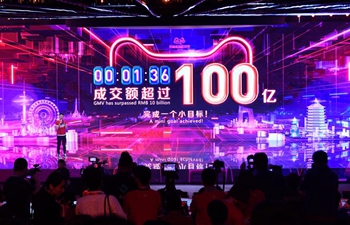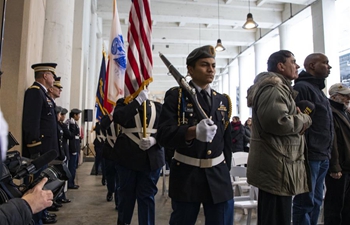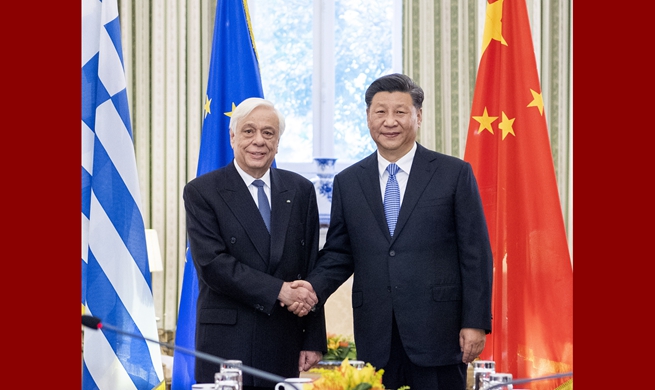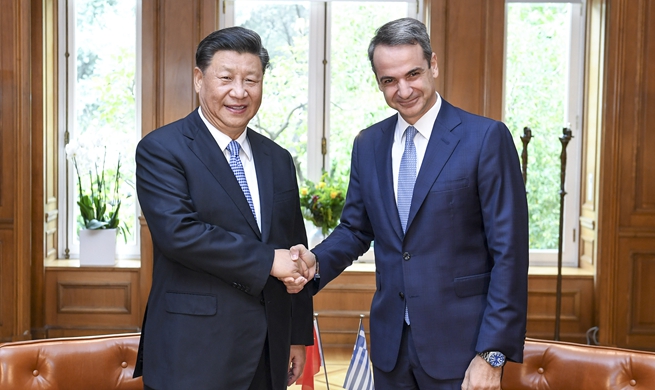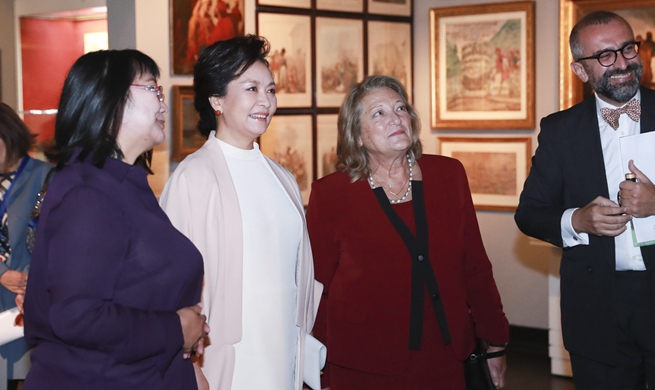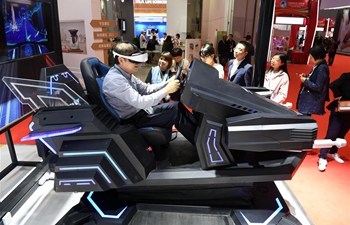BEIJING, Nov. 12 (Xinhua) -- Li Nan, both as a debater and a senior college student, is in awe of the development of artificial intelligence (AI).
In the final of a debate competition recently held in Beijing, Li Nan and his teammates from Wuhan University, central China's Hubei Province, beat their opponents on the topic of "If an AI passes the Turing test with a perfect score, should it be given legal personality?"
"Why does AI have to think like human beings? Why can't it think like God?" On behalf of the side that is against granting AI legal personalities, Li Nan asked a series of philosophical questions that almost rendered his rival speechless.
The Wuhan University debate was crowned champion of the first "Morning Star" World University Debate Tour funded by the Science & Fantasy Growth Foundation, a Shenzhen-based fund dedicated to the development of the science fiction industry.
Li has participated in many debate competitions since he was a freshman. However, the "Morning Star" competition tapped into his scientific imagination for the first time.
"When we were preparing for the competition, we imagined what level a very advanced AI would develop into in the future. If they have self-awareness, they would be far more powerful than us. No human words could describe them precisely," Li said.
Li also expressed his concerns about the employment pressure brought by AI in reality. "AI has been used to help decide cases in court, and there will be more AI judges in the future. As a law student about to graduate, I am quite worried."
However, Huang Sihan, Li Nan's teammate and a graduate student majoring in radio and television art theory, is full of high expectations for the future of AI.
Huang believes that if AI has self-awareness, a new civilization different from humans would be created, and humans would not feel lonely anymore in a world of diversified civilizations.
The "Morning Star" debate competition aims to popularize scientific knowledge and spread the scientific spirit by enabling more college students to discuss topics of science and technology using critical thinking, said Ma Guobin, co-founder of the Science & Fantasy Growth Foundation.
A total of 214 college debate teams participated in the competition. In addition to the AI topic, competitors also had heated debates over topics such as "whether science and technology are neutral" and "whether technological development will make the world peaceful."
The debates could raise people's attention to related topics quickly and generate greater social influence among young people, Ma said.
Zhou Xuanyi, associate professor at the School of Philosophy of Wuhan University and coach of the Wuhan University debate team in the finals, believes that debating is a good supplement for college education.
"Debate can help develop scientific literacy, as students can experience the power of critical thinking in the confrontation of different ideas from two sides," Zhou said.
In recent years, China has been promoting an innovation-driven development strategy, which lifts the popularization of science to a level as equally important as sci-tech innovation. The Chinese government has pledged to increase the proportion of its citizens with scientific literacy to above 10 percent by 2020.
"This debate is a very innovative science popularization activity, which will help cultivate the students' zest for science and enhance their scientific literacy," Ma said.




